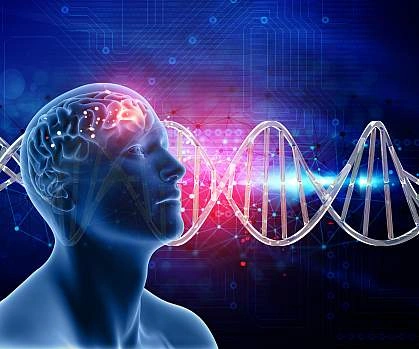Is mental illness genetic

If you tested your DNA with a personal genomics service like 23andMe, AncestryDNA, FamilyTreeDNA, MyHeritage or another testing company, you can learn more about your risk factors for hundreds of diseases. By clicking the button above ⬆️, you can upload your raw DNA data file and receive a personalized 250-page health report with research links that is the most comprehensive.
Health conditions that alter a person's thoughts, emotions, and behaviors are referred to as mental disorders. These conditions can have a profound impact on an individual's life, affecting their ability to handle life's challenges, earn a livelihood, and interact with others.
The National Institute of Mental Health (NIMH) has conducted and financed research that reveals the origin of several mental disorders as a blend of biological, environmental, psychological, and genetic factors. Furthermore, an increasing amount of research has discovered that specific genes and gene variations are linked to mental disorders. Consequently, what is the most effective approach to "examine your genes" and assess your individual risk?
ASD, bipolar disorder, and schizophrenia share several mutations, polymorphisms, and epigenetic changes (known as cross disorder association) that affect pleiotropic genes. These genes have a broad impact and can cause multiple effects from a single gene. One such gene is CACNA1C (or related calcium channel genes like CACNB2), which is highly implicated in all of these disorders due to their common pathogenesis of abnormal synaptic development.
Genetic screening studies have identified several candidates, with DCC (SNP rs8084351) being a prominent example. The protein produced by DCC plays a crucial role in axonal growth during neurodevelopment, regulating white matter projections in the developing brain. Loss-of-function mutations in DCC result in severe neurodevelopmental complications, including the loss of midline commissural tracts and abnormal disorganization of white matter tracts.
RS7193263, also known as SNP, is another significant pleiotropic gene. It regulates the development of neuronal NMDA-receptors and voltage-gated calcium channels. In mice, genetic knockout models of RBFOX1 have shown that impaired neuronal migration and synapse formation occur in the developing brain. This SNP also affects these functions.
The gene NOX4 (SNP rs117956829) is known for its high pleiotropy and involvement in ASD, schizophrenia, and bipolar disorder. It plays a significant role in generating superoxide in both the developing and adult brain, while also facilitating the growth of neural stem cells.
To sum up, mental illnesses like bipolar disorder, schizophrenia, and ASD are heavily influenced by genetics, including mutations, polymorphisms, and epigenetic alterations. These can be inherited from a parent who is affected or arise spontaneously during development.